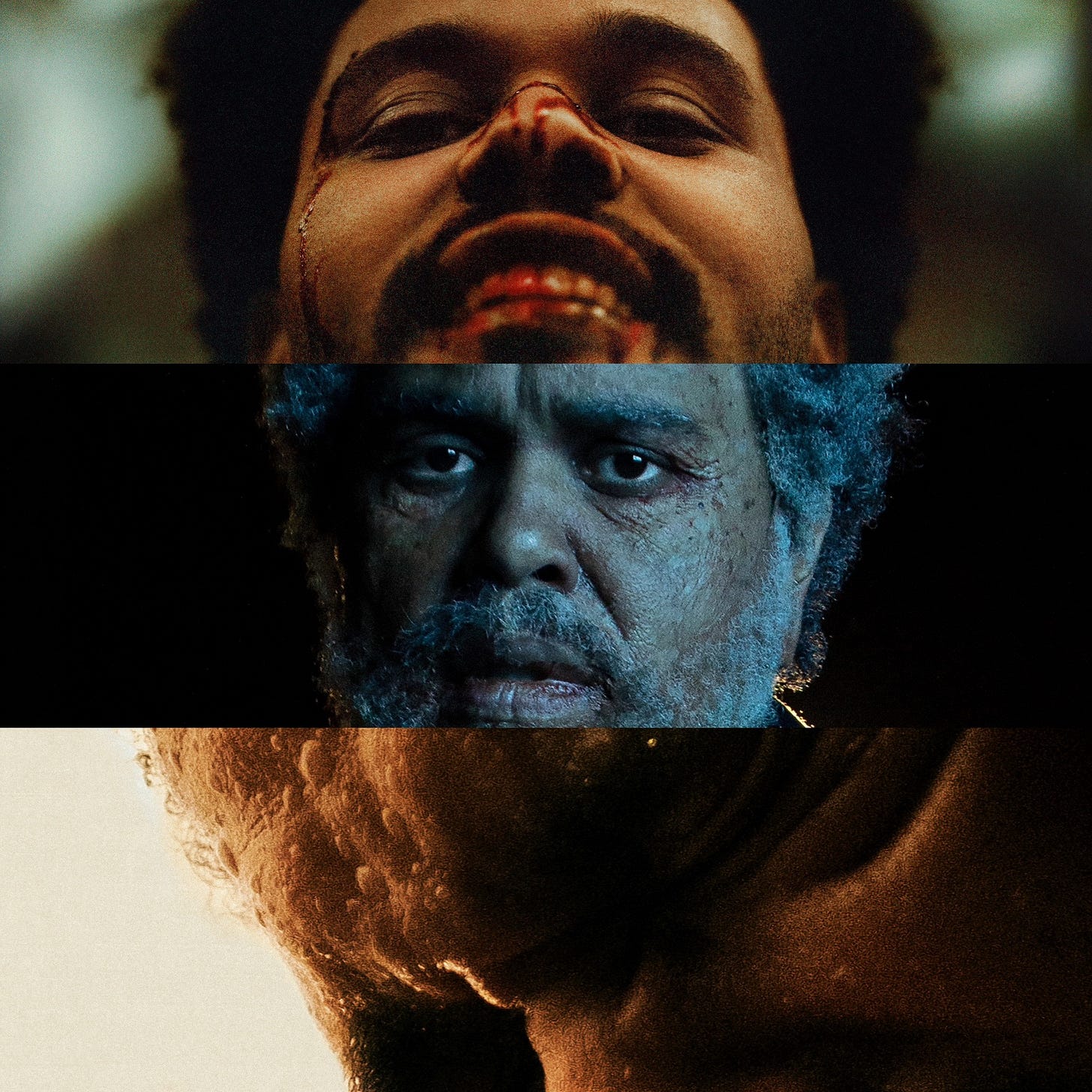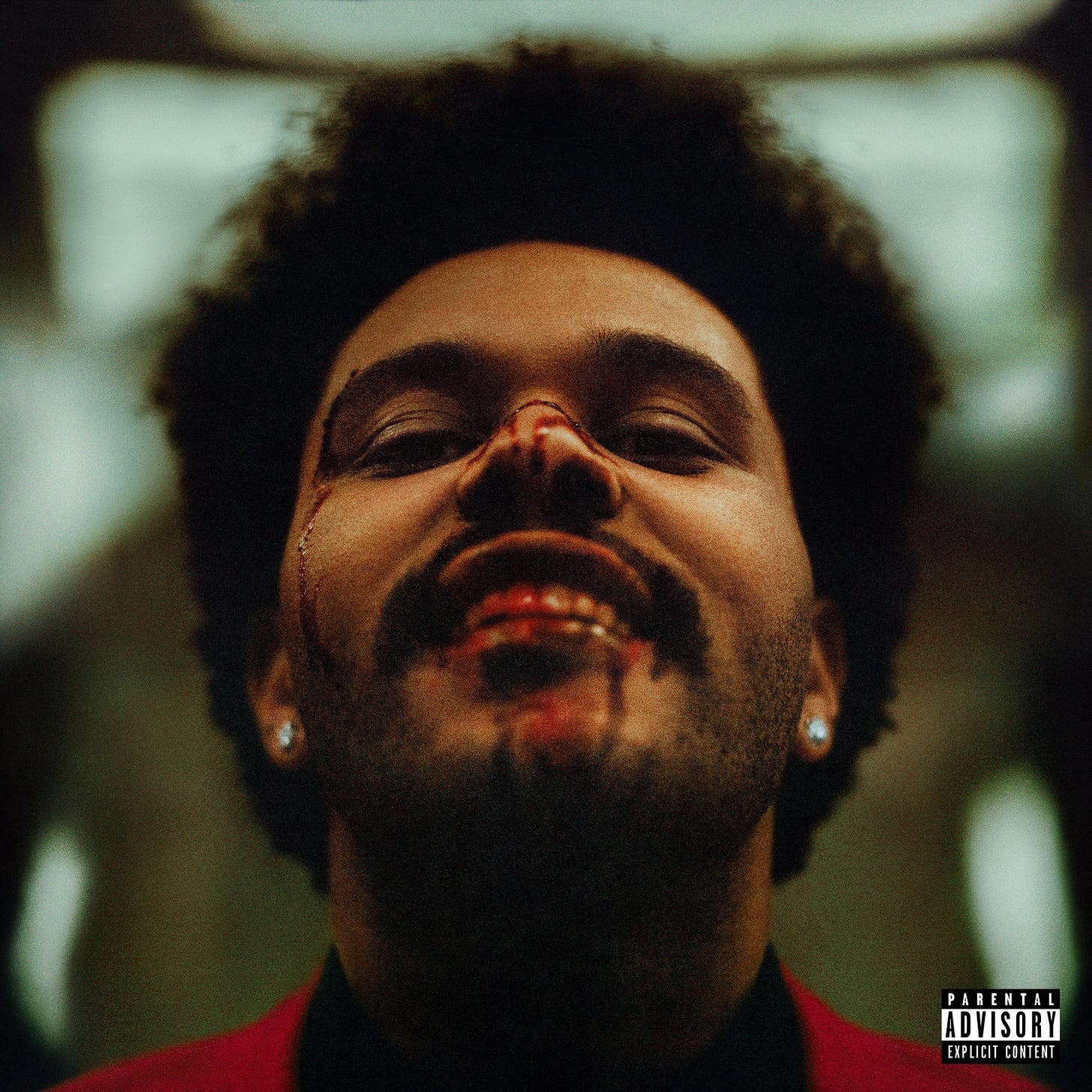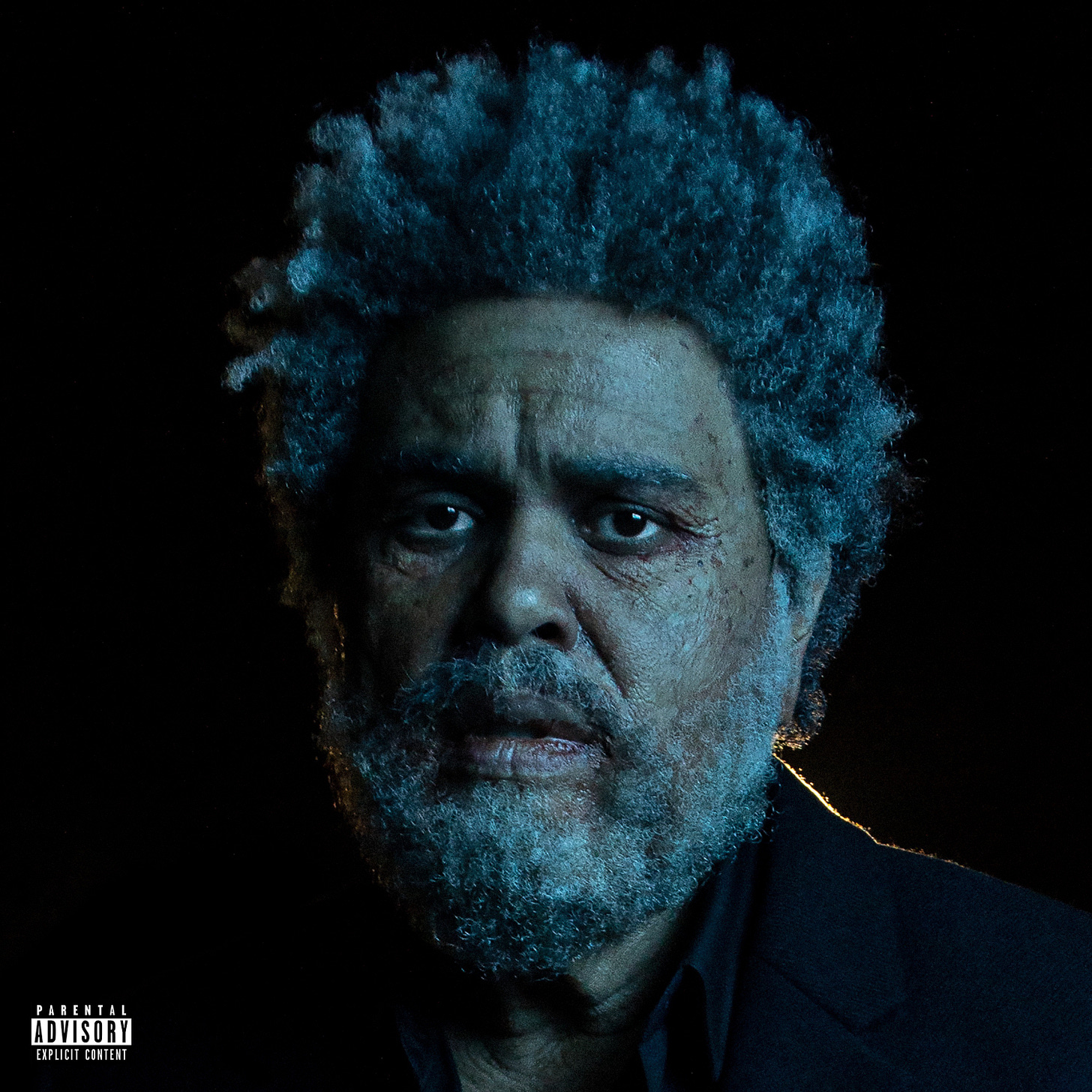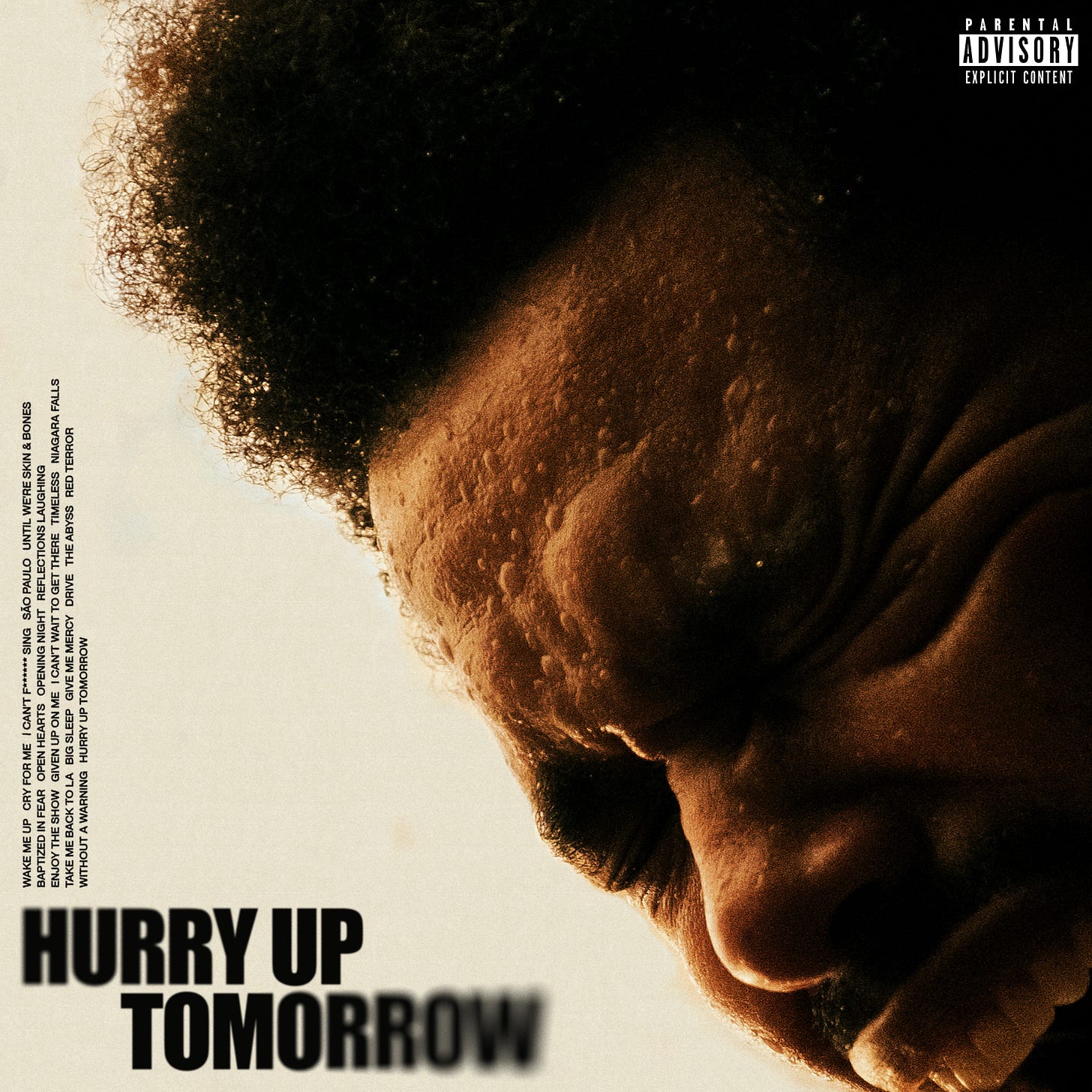The Weeknd’s Trilogy as Dantean Allegory of Ego, Humility, and Transcendence
This trilogy traces not just the arc of Abel Tesfaye’s vices and redemptions, but dramatizes the darkness of self-destruction and ego to a tentative light of acceptance and humility.
I. Introduction: The Pop Auteur and the Epic Tradition
The trilogy of albums by Abel “The Weeknd” Tesfaye—After Hours (2020), Dawn FM (2022), and Hurry Up Tomorrow (2025)—represents one of the most ambitious narrative projects in 21st-century popular music. This body of work is not merely a collection of sequential releases but a meticulously constructed modern allegory of Dante Alighieri’s 14th-century epic, The Divine Comedy. The central thesis of this analysis is that Tesfaye has deliberately reframed the soul’s archetypal pilgrimage from sin to salvation within the contemporary milieu of celebrity, hedonism, and artistic identity. Acting as a modern pop auteur, Tesfaye utilizes the album format to achieve a narrative and thematic scope traditionally associated with epic literature, mapping his protagonist’s journey through a symbolic Hell, Purgatory, and Paradise.
The engagement of popular music with canonical literature, a tradition sometimes termed “litpop,” has a rich history. Precedents range from direct adaptations, such as Kate Bush’s “Wuthering Heights,” to thematic inspirations, like David Bowie’s Orwellian-influenced concept album Diamond Dogs. Artists from Bob Dylan to Taylor Swift have woven literary allusions into their songwriting, using established narratives to deepen their own lyrical worlds. However, the sheer scale of Tesfaye’s project—a multi-year, three-album saga chronicling a single character’s spiritual transformation—distinguishes it from its predecessors. It marks a significant contemporary revival of the epic form in an era often defined by ephemeral, single-track consumption, reasserting the album’s potential as a vessel for high art. To provide a clear and immediate roadmap of the argument, the following table summarizes the core allegorical mapping between Dante’s epic and The Weeknd’s trilogy.
II. After Hours: A Descent into the Inferno of Modern Hedonism
The Dark Wood and the Gates of Hell
Dante’s epic begins with the poet finding himself, at the midpoint of his life, lost in a “dark wood” (selva oscura), a symbol of spiritual crisis and sin. The Weeknd’s trilogy commences in a strikingly similar state of disorientation. The opening track of After Hours, “Alone Again,” serves as the protagonist’s awakening in this modern dark wood. The lyrics, “Take off my disguise/I’m living someone else’s life/Suppressing who I was inside,” articulate a profound loss of self, a soul alienated from its true nature by a persona it can no longer sustain. This is not merely sadness but a Dantesque state of being astray from the “straight way” (diritta via). The album immediately establishes its setting as a nightmarish, hedonistic Las Vegas—a city that functions as the contemporary Inferno, a realm defined by artifice, overindulgence, and the inevitable spiritual consequences that follow.
The Circles of Indulgence (Upper Hell)
The narrative progression of After Hours mirrors the hierarchical structure of Dante’s Hell, where sins are categorized and punished according to their severity. The album’s first act explores the sins of incontinence—those of passion and appetite—which Dante places in Upper Hell.
The second circle of the Inferno is reserved for the lustful, who are eternally buffeted by a violent storm, symbolizing their submission to passion over reason. The Weeknd’s protagonist is similarly tormented. Tracks like “Too Late,” “Hardest to Love,” and “Scared to Live” delve into the chaotic aftermath of relationships destroyed by infidelity, emotional unavailability, and cycles of regret. The protagonist’s admission, “But I’ve been the hardest to love/You’re tryna let me go”, is a confession of his own culpability. In “Scared to Live,” he acknowledges his role in his partner’s emotional paralysis, singing, “I’m the reason you forgot to love”. This emotional turmoil is a psychological contrapasso, a punishment that fits the sin. An external wind does not blow him, but he is relentlessly battered by the internal storms of guilt and loneliness his lust has created.
The descent continues into the sins of Greed and Wrath, which occupy Dante’s fourth and fifth circles. The track “Heartless” marks a pivotal moment where the protagonist ceases to lament his sins merely and instead actively embraces a cold, materialistic, and wrathful persona. The Las Vegas setting, a modern symbol of avarice, becomes his spiritual home. He declares, “All this money and this pain got me heartless”, linking his emotional numbness directly to material wealth. His boastful, aggressive tone (“Never need a bitch, I’m what a bitch need”) signifies a shift from passive suffering to an active embrace of a sinful identity, a deeper commitment to the infernal world he inhabits.
The Descent into Deeper Sin (The City of Dis)
The album’s moral and narrative nadir arrives with the track “Faith,” representing a journey into the deeper, more malicious sins of Lower Hell, which Dante situates within the walls of the City of Dis. Here, the sins are not of passion but of the will and intellect—Heresy, Violence, and Fraud. The lyric “I’m losing my religion” is a direct declaration of heresy, a conscious rejection of spiritual values in favor of a nihilistic plunge into substance abuse. The detailed descriptions of drug use—“Light a blunt up with the flame/Put that cocaine on a plate”—are more than hedonistic; they represent an act of violence against the self, a sin punished in Dante’s seventh circle.
The protagonist’s descent culminates in a chilling act of malice that transcends mere self-indulgence. The line, “And if I OD, I want you to OD right beside me”, is a perversion of love into a mutual suicide pact. It is a desire to pull another soul into damnation, reflecting the graver sins of malice punished within Dis. The album’s visual aesthetic serves as a modern form of contrapasso, the principle of symbolic justice that governs Dante’s Hell. The protagonist’s face, seen across music videos and promotional material, becomes progressively bruised, bloodied, and bandaged, culminating in his decapitation in the “In Your Eyes” video. This physical decay is not random; it is the external manifestation of the soul’s internal corruption, a series of self-inflicted spiritual wounds made visible.
The progression of sins in After Hours is not arbitrary but follows a Dantesque logic of increasing severity. The narrative moves from sins of passion and appetite (Lust in “Too Late,” Greed in “Heartless”) to sins of malice and spiritual betrayal (Heresy and Violence in “Faith”). This mirrors the architectural morality of the Inferno, where sins of the will and intellect are punished more severely and deeper in Hell than sins of passion. This structural parallel suggests a deep, intentional engagement with Dante’s specific moral framework, elevating the album from a simple “descent into hell” narrative to a nuanced allegorical mapping.
III. Dawn FM: The Penitent’s Progress on Mount Purgatorio
The Arrival and the Guide
Where After Hours ends in the claustrophobic darkness of “Until I Bleed Out,” a desperate plea to be purged of agonizing memories, Dawn FM opens with a sense of hopeful transition. The album is framed as a surreal radio broadcast, 103.5 Dawn FM, guiding the listener through a state of purgatory. The inaugural narration from comedian Jim Carrey explicitly signals this shift: “You’ve been in the dark for way too long. It’s time to walk into the light and accept your fate with open arms”. This is the journey from Hell to Mount Purgatory, a realm of waiting, reflection, and purification.
In Dante’s journey, the Roman poet Virgil serves as his guide through Hell and most of Purgatory, representing the pinnacle of human reason. On Dawn FM, Jim Carrey’s radio DJ assumes this role. He is not a divine figure but a philosophical and soothing presence, a modern Virgil whose spoken-word interludes prompt the penitent soul to engage in the work of self-examination. His questions—“How many grudges did you take to your grave?/When you weren’t liked or followed, how did you behave?”—are designed to facilitate the process of purgation, forcing the protagonist to confront the very sins that defined his time in the Inferno.
Climbing the Terraces: The Purgation of Disordered Love
Dante’s Mount Purgatory is structured with seven terraces, each dedicated to purging one of the seven deadly sins. The theological basis for this structure is the re-ordering of perverted forms of love: love that is malicious (Pride, Envy, Wrath), deficient (Sloth), or excessive (Lust, Gluttony, Greed). The lyrical arc of awn FM can be interpreted as an allegorical ascent of these terraces, as the protagonist confronts and purifies his own disordered attachments.
The journey begins with the soul still mired in the after-effects of Hell. The second track, “Gasoline,” reveals a character grappling with nihilism and despair: “It’s 5 AM, I’m nihilist/I know there’s nothing after this”. This state of spiritual apathy is a direct parallel to the sin of Sloth (or acedia), a deficient love of God that hinders the soul’s progress. It is the first major obstacle to be overcome on the mountain, a lingering darkness that must be dispelled before the climb can truly begin.
From this point, the album’s focus shifts to reflection on past relationships, purging the sins of disordered love. In “Out of Time,” the protagonist expresses profound guilt and a desire for reconciliation, admitting, “The last few months, I’ve been workin’ on me, baby/There’s so much trauma in my life/I’ve been so cold to the ones who loved me, baby/I look back now and I realize”. This introspection, a stark contrast to the blame-shifting of After Hours, represents the purgation of sins related to excessive and deficient love—lust that objectified others and a failure to love them properly.
The album’s emotional and spiritual climax arrives with “Less Than Zero,” a track that serves as the purgation of Pride, the foundational sin cleansed on the first and lowest terrace of Purgatory. The lyric “I’ll always be less than zero/You tried your best with me, I know” is an act of profound humility. It is a complete renunciation of the arrogant, self-aggrandizing “Heartless” persona. This admission of his own fundamental brokenness and the acknowledgment of another’s grace is the ultimate humbling of the ego, the prerequisite for any true spiritual ascent.
The Sonic Ascent Towards the Light
The album’s sonic palette is a crucial thematic element. The dark, often oppressive synthwave and trap influences of After Hours give way to a brighter, more propulsive sound rooted in 80s synth-pop and new wave. This musical shift is not merely stylistic; it sonically represents the journey out of the infernal darkness and “toward the light” that waits at the summit of Mount Purgatory. The upbeat tempo of tracks like “Take My Breath” and “Sacrifice” provides the soundtrack for the arduous but hopeful climb. Carrey’s final, poetic benediction on “Phantom Regret by Jim” encapsulates the entire purpose of the purgatorial journey: “You gotta be Heaven to see Heaven”. The soul cannot enter Paradise until it has purified itself and become, in essence, paradisiacal.
Dawn FM does not merely describe Purgatory; its narrative structure enacts the theological and psychological process of purgation. The album’s arc mirrors the re-ordering of disordered love as described by Dante. It moves from a state of nihilistic self-obsession (“Gasoline”) to regretful introspection about his impact on others (“Out of Time”) and culminates in the humble acceptance of his own failings (“Less Than Zero”). This progression is a direct parallel to the spiritual labor performed on the terraces of Mount Purgatory, demonstrating that the album’s structure is a sophisticated enactment of its core theological concept.
IV. Hurry Up Tomorrow: An Ascent into a Secular Paradiso
The Final Transcendence: The Death of “The Weeknd”
The trilogy’s final installment, Hurry Up Tomorrow, functions as its Paradiso. However, this Paradise is not a celestial realm of saints and angels but a state of authentic being, achieved through catharsis and the symbolic death of a corrupting artistic identity. The album’s central narrative is the shedding of “The Weeknd” persona and the rebirth of the artist as Abel Tesfaye. In numerous interviews, Tesfaye has explicitly framed this project as a final act, stating, “I still want to kill The Weeknd. And I will. Eventually. I’m definitely trying to shed that skin and be reborn”. This stated goal is the modern, secular equivalent of the soul’s ascent to union with the divine. The persona caused the damnation of After Hours; the purgation of Dawn FM was the psychological work of confronting its toll; therefore, the salvation of Hurry Up Tomorrow must be its final, definitive destruction.
The Ascent: A Journey of Redemption and Self-Actualization
While Dante’s Paradiso involves a physical ascent through nine celestial spheres guided by Beatrice and various saints, Tesfaye’s journey is an internal, artistic one. The album’s tracks represent stages of this final spiritual transformation. Songs like “Give Me Mercy” and the title track, “Hurry Up Tomorrow,” are framed as direct pleas for grace and forgiveness. The lyric “Wash me with your fire/Who else has to pay for my sins?/My love’s fabricated, it’s too late to save it/Now I’m ready for the end” is the ultimate act of supplication. It is the voice of a soul that has completed its penance and now surrenders to a higher power for final purification and release.
In Dante’s ascent, Beatrice, his idealized love, guides him through Heaven, representing divine revelation and grace. The collaborations on Hurry Up Tomorrow can be interpreted as encounters with similar guiding spirits. The surrender to the powerful feminine energy in “São Paulo,” a collaboration with Brazilian artist Anitta, is particularly telling. The lyric “I surrender at your feet, baby, put it all on me” signifies an embrace of a higher, more potent form of love than the transactional, self-serving lust that defined After Hours. This figure, a modern Beatrice, helps guide the protagonist toward his final transformation.
The album’s conclusion represents the attainment of a modern Beatific Vision—a moment of ultimate, transcendent understanding. The theme of eternity is central to the track “Timeless,” where the protagonist declares, “It don’t matter what they say, I’m timeless, yeah”. This is not the boast of the “Heartless” persona but the realization of an artist who has achieved a holistic perspective on his legacy. The album’s cyclical structure solidifies this sense of completion. The final notes of the title track, “Hurry Up Tomorrow,” blend seamlessly back into the opening of “High for This,” the very first song from his debut mixtape, House of Balloons. This musical ouroboros symbolizes a state of ultimate understanding. Like Dante, who in the final canto of Paradiso perceives the unity of all creation within the divine, Tesfaye achieves a complete vision of his artistic journey. The past is not erased but redeemed and integrated into a perfect, “timeless” whole.
The Paradiso of this trilogy is a secular and postmodern one. Transcendence is not achieved through union with an external God, but through the deconstruction of the false, commodified self (the celebrity persona of “The Weeknd”) and the integration of the authentic self (the artist, Abel Tesfaye). The “divine love” that facilitates this ascent is ultimately self-acceptance, forgiveness, and artistic liberation. The salvation sought is not for the afterlife, but for his ongoing life as a human being, free from the character he created.
V. The Pilgrim’s Arc: From “Heartless” Bravado to Humble Supplication
The transformative journey of the protagonist across the three albums is most clearly traced through the evolution of his moral and psychological state, moving from unrepentant arrogance to penitent humility and finally to a state of grace.
Act I: The Arrogance of the Damned (After Hours)
The pilgrim’s journey begins in a state of profound pride and self-deception. In After Hours, the protagonist is defined by his refusal to accept responsibility. In “Heartless,” he projects a persona of invincible arrogance, boasting, “Never need a bitch, I’m what a bitch need”. In “Escape from LA,” he explicitly blames the city and its temptations for his own infidelity, absolving himself of his actions. This is the soul at its most lost, so mired in the sin of Pride that it is incapable of genuine repentance, justifying its own damnation.
Act II: The Dawn of Humility (Dawn FM)
Dawn FM marks the crucial turning point, the beginning of the end for this prideful persona. The shift toward self-awareness is gradual but definitive. It begins with the simple admission of effort in “Out of Time”: “The last few months, I’ve been workin’ on me, baby”. This acknowledgment of his own flaws is a radical departure from the previous album’s bravado. The process culminates in the profound self-abnegation of “Less Than Zero,” where he accepts his own brokenness with the line, “I’ll always be less than zero”. This progression demonstrates the essential humbling of the ego, the shedding of pride that is the necessary first step on the path to grace in Dante’s Purgatory.
Act III: The Grace of the Redeemed (Hurry Up Tomorrow)
The arc finds its resolution in Hurry Up Tomorrow, where the protagonist’s voice is no longer one of arrogance or even simple regret, but of humble supplication. The direct plea in “Give Me Mercy” for forgiveness for his past sins and the ultimate surrender in the title track—“Now I’m ready for the end”—showcase the final state of the pilgrim. Purified through the suffering of Hell and the reflection of Purgatory, he has transformed from a “Heartless” sinner, blind to his own faults, into a humble soul, aware of his need for redemption and ready to accept it.
VI. Conclusion: Reviving the Epic in the Streaming Age
The Weeknd’s trilogy of After Hours, Dawn FM, and Hurry Up Tomorrow stands as a monumental achievement in contemporary music, successfully mapping the spiritual progression of Dante Alighieri’s The Divine Comedy onto a modern narrative of celebrity and self-realization. The journey from the infernal hedonism of After Hours, through the penitent reflection of Dawn FM, to the transcendent rebirth of Hurry Up Tomorrow mirrors the soul’s path from recognizing sin, through penance, to ultimate salvation.
This project carries significant cultural implications. In an era where the music industry often prioritizes the ephemeral appeal of the single, Tesfaye’s trilogy makes a powerful statement about the enduring value of the album as a cohesive art form. By demanding sequential, deep listening across three distinct but intricately connected works, he challenges contemporary consumption habits. He reasserts the album’s capacity for the kind of profound, long-form narrative traditionally reserved for literature and film. This ambitious structure insists that popular music can and should be treated as a medium for high art.
Ultimately, the trilogy functions as a significant act of contemporary myth-making. Tesfaye leverages the foundational myth of the Western literary canon to structure, legitimize, and elevate his own artistic narrative. This act deliberately blurs the lines between “high art” and popular culture, arguing implicitly that a pop album can explore the timeless themes of the human condition—sin, identity, redemption, and the search for meaning—with the same depth and seriousness as a 700-year-old epic poem. In doing so, The Weeknd not only creates the definitive artistic statement of his career but also demonstrates the enduring power of classical structures to illuminate the complexities of the modern world, securing his legacy as one of the most vital and visionary artists of his generation.





